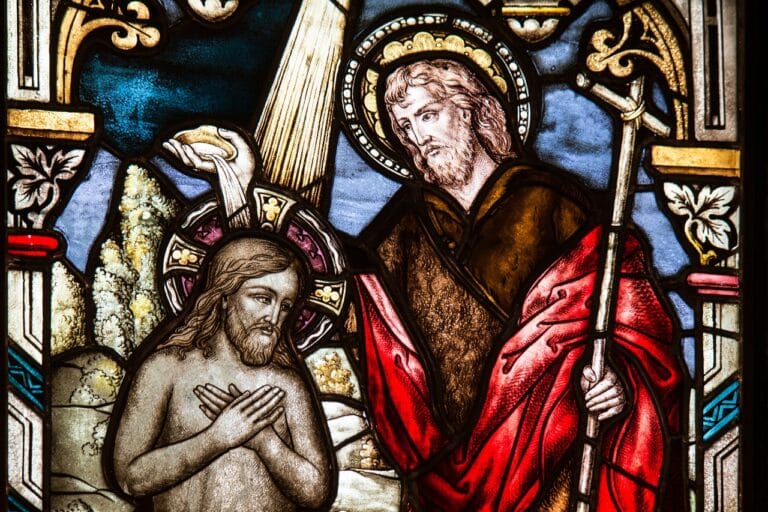
The 70 Weeks of Daniel is a prophetic timeline found in the Book of Daniel in the Bible. It outlines significant events in Jewish history and hints at the coming of the Messiah. Understanding this prophecy can provide insight into biblical history and future events.
Overview of the 70 Weeks of Daniel
The 70 Weeks of Daniel refers to a passage in Daniel 9:24-27, where the prophet Daniel receives a message from the angel Gabriel. This prophecy is divided into 70 “weeks,” which are understood to represent periods of seven years each, totaling 490 years. The timeline is crucial for understanding significant events in Jewish history and the coming of Jesus Christ.
The prophecy starts with the decree to restore and rebuild Jerusalem and outlines various key events that lead to the coming of the Messiah. This timeline is significant not just for biblical scholars but for anyone interested in the intersection of history and prophecy. Understanding these weeks helps believers and historians grasp the unfolding of God’s plan.
The Decree to Rebuild Jerusalem
The first key event in the 70 Weeks of Daniel is the decree to restore and rebuild Jerusalem. This decree is often linked to the command given by King Artaxerxes in 457 BC. This event marks the starting point of the 490-year timeline.
The significance of this decree lies in its announcement of a new beginning for the Jewish people after their Babylonian exile. It symbolized hope and renewal, allowing the Jews to return to their homeland and rebuild their city and temple. The restoration of Jerusalem was essential for fulfilling God’s promises and establishing the context for the coming of the Messiah.
This decree, therefore, sets the stage for the subsequent events in the 70 weeks. It reflects God’s faithfulness to His people and His commitment to restoring them. The rebuilding of Jerusalem becomes a focal point of the timeline, indicating that the events following this decree are intrinsically linked to God’s redemptive plan.
The Seven Weeks

Following the decree to rebuild, the first seven weeks (49 years) are marked by the actual rebuilding of Jerusalem and its walls. This period is characterized by the struggles and efforts of the Jewish people as they work to restore their city after decades of desolation.
During this time, significant figures like Ezra and Nehemiah emerge to lead the people in their efforts. Ezra focuses on spiritual renewal and the re-establishment of the Law, while Nehemiah emphasizes the physical reconstruction of the walls. Their leadership exemplifies the challenges faced by the returning exiles and the determination to restore their identity as God’s chosen people.
The completion of the rebuilding of Jerusalem represents a significant milestone in the prophetic timeline. It signifies not only a physical restoration but also a spiritual awakening among the Jewish people, setting the stage for the next key events in the prophecy.
The Sixty-Two Weeks
After the initial seven weeks, the prophecy continues with the next sixty-two weeks (434 years). This period extends from the completion of the rebuilding of Jerusalem until the coming of the Anointed One, often interpreted as the Messiah.
During these sixty-two weeks, Israel experiences a tumultuous history, including foreign occupations, political struggles, and spiritual challenges. The Jewish people face numerous hardships, including the Greco-Roman influence and subsequent oppression. These years are marked by a longing for the Messiah, as God’s people await the fulfillment of His promises.
This period culminates in the arrival of Jesus Christ, who Christians believe fulfills the prophecy of the Anointed One. His birth, ministry, death, and resurrection are seen as pivotal events that resonate with the timeline established in Daniel. The anticipation of the Messiah reflects the deep-seated hope within the Jewish community during this time.
The Final Week
The final week of the 70 Weeks of Daniel is often seen as a pivotal moment in the prophetic timeline. This week, or seven years, is divided into two halves: the first half is marked by the ministry of Christ, while the second half is often associated with the events surrounding His death and the subsequent destruction of Jerusalem in AD 70.
The first half of this final week aligns with Jesus’ ministry, during which He proclaims the Kingdom of God and performs miracles. This period is characterized by a growing recognition of Jesus as the Messiah, leading to His eventual rejection by many.
The second half of the week is marked by Jesus’ crucifixion, which Christians believe fulfills the prophecy of the “cutting off” of the Anointed One. Following this, the destruction of Jerusalem serves as a significant event, marking the end of the old covenant and the beginning of a new era in God’s plan for humanity.
Key Events in the Timeline

The 70 Weeks of Daniel are punctuated by several key events that define the prophecy. Understanding these events allows for a clearer grasp of the timeline and its significance.
1. **The Decree to Rebuild Jerusalem**: This marks the beginning of the prophetic timeline and symbolizes a turning point for the Jewish people.
2. **The Rebuilding of Jerusalem**: The efforts of leaders like Ezra and Nehemiah to restore the city and its spiritual foundation are crucial to the prophecy.
3. **The Arrival of the Anointed One**: This event, interpreted as the coming of Jesus Christ, represents the culmination of the prophecy and the fulfillment of God’s promises.
4. **The Crucifixion of Jesus**: Often seen as a pivotal moment within the final week, this event signifies the “cutting off” of the Anointed One and the establishment of a new covenant.
5. **The Destruction of Jerusalem**: This marks the end of the old covenant and serves as a significant transition point in biblical history.
Theological Implications
The 70 Weeks of Daniel carry profound theological implications for both Jews and Christians. For Jews, the prophecy emphasizes the importance of waiting for a Messiah who will fulfill God’s promises of restoration. It serves as a reminder of their history, struggles, and the hope of divine intervention.
For Christians, the prophecy points to the significance of Jesus as the fulfillment of the Old Testament promises. The events outlined in the 70 Weeks reinforce the belief that God’s plan for salvation was preordained and executed through Christ.
Understanding the prophetic timeline encourages believers to reflect on God’s sovereignty and His faithfulness throughout history. It serves as a source of encouragement, emphasizing that God is actively involved in the unfolding of His redemptive plan.
Conclusion
The 70 Weeks of Daniel presents a fascinating and complex timeline that intertwines significant historical events with God’s prophetic plan. From the decree to rebuild Jerusalem to the coming of the Messiah, each segment of the prophecy holds immense meaning for both Jews and Christians.
By studying this timeline, individuals can gain a deeper understanding of biblical history and the overarching narrative of redemption. The 70 Weeks of Daniel serve as a reminder of God’s faithfulness and His commitment to fulfilling His promises throughout the ages.
As believers reflect on this prophecy, they are encouraged to remain hopeful and vigilant, trusting in God’s divine plan for the future. The events of the 70 Weeks not only illuminate the past but also provide insight into the present and future of God’s people.
FAQs
What is the significance of the 70 Weeks of Daniel?
The 70 Weeks of Daniel represent a prophetic timeline that outlines key events in Jewish history and the coming of the Messiah. It highlights God’s redemptive plan and serves as a reminder of His faithfulness to His people.
How do the 70 Weeks relate to Jesus?
The prophecy culminates in the arrival of the Anointed One, interpreted as Jesus Christ. His birth, ministry, and crucifixion fulfill the events outlined in the timeline, signifying the establishment of a new covenant.
What events occur during the first seven weeks?
The first seven weeks focus on the rebuilding of Jerusalem, led by figures like Ezra and Nehemiah. This period is marked by the restoration of the city and the spiritual renewal of the Jewish people.
What is the importance of the final week?
The final week is crucial as it encompasses key events such as Jesus’ ministry, crucifixion, and the destruction of Jerusalem. These events mark significant transitions in biblical history and the establishment of a new covenant.
Why study the 70 Weeks of Daniel?
Studying the 70 Weeks of Daniel helps individuals understand the intersection of prophecy, history, and theology. It provides insight into God’s plan for His people and emphasizes the significance of faith and hope in the unfolding of divine purposes.






